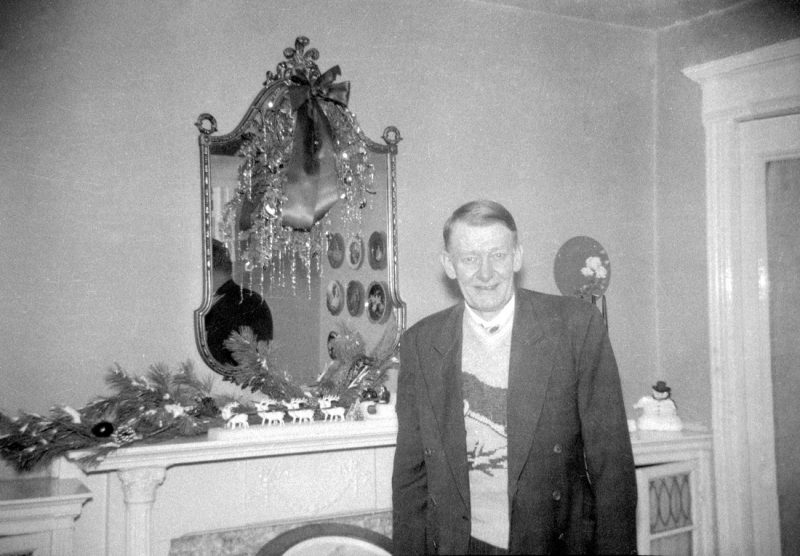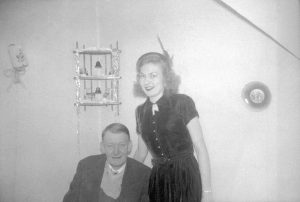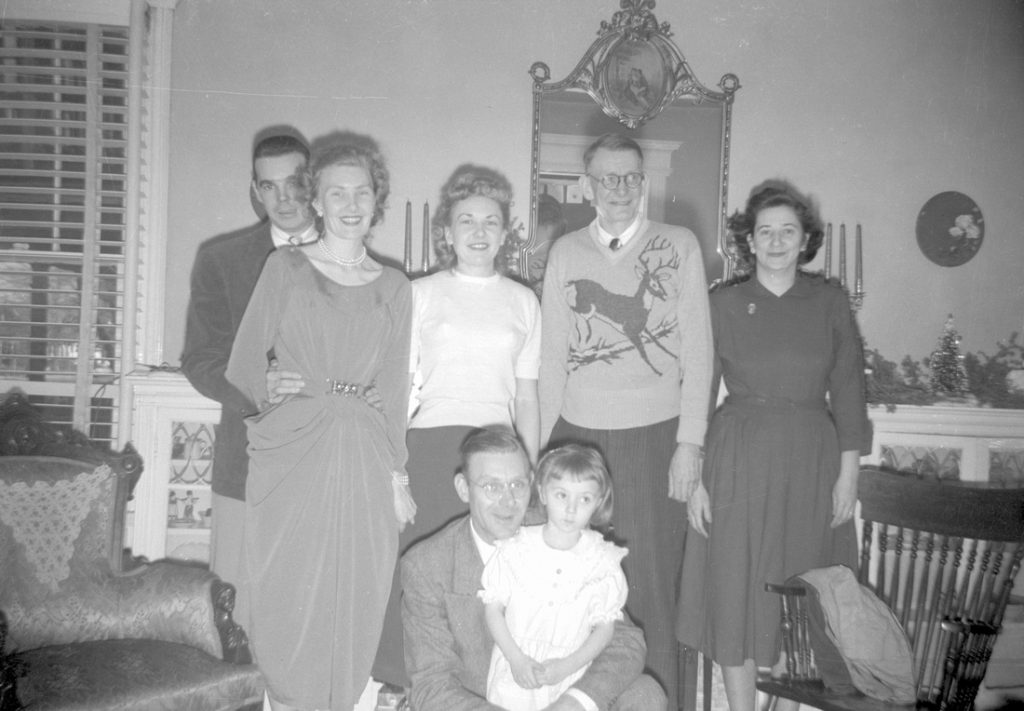
Clarence Anderson was a complex and wounded person. He was capable of great charm, and savage emotional and physical violence. He told my mother, “Always remember we are descended from kings.” Researching his life is like walking on dead end streets and dark alleys.
Clarence’s life took a downturn after his father, Carl Anderson, died in Elizabeth General Hospital on September 16, 1930 of a heart condition. He was 74. Carl Anderson’s house on 13 Atlantic Street in Elizabeth, New Jersey was deeded to his son, with the condition that Mrs. Lena Holst, his “friend and housekeeper” could continue living in the house in a front room. Mrs. Holst (which my mother pronounced as “Hulse”) may have been the person who physically and emotionally abused Clarence Anderson as a young boy. I can only imagine what inner conflict and resentment that request caused Clarence.
Clarence Anderson was an alcoholic. As a functioning alcoholic, he was able to keep his job and drink. Clarence worked as a driver for Fricke’s furniture company in Elizabeth. Mom told me a story about seeing her father walking down the street with a bushel of crabs. She was looking forward to the feast, and so happy he hadn’t stopped at a tavern on the way home. He may have made furniture in addition to delivering it. Clarence must have learned his woodworking skills from his father, Carl, who started out as a ship’s carpenter. A pine lingerie chest my mom had for many years and passed to me may have been built by him.
When he was drunk, he would beat his wife and children. His wife, Anna Paloske, left and took the children with her back to her father’s house. Clarence made a contrite and sorrowful plea and she returned. The abuse continued. In 1931, ’32 or ’33, my mother jumped on his back and hit him when he was beating her mother. Clarence shook her off and she landed on the floor. He put a linoleum knife to her throat. Her older brother, Carl, was able to pull him off her. Clarence ended up in jail for a few months.
In October 1937, his wife of 20 years, Anna Paloske, died of a stroke. He was 43 and had eight children at home. The oldest was almost 20, the youngest 2. My mother accused him of sexual abuse. A state agency stepped in, and the children were separated. The two oldest (Carl and Florence) went to live with Frank and Mary Pavlosk, their mother’s father, and sister; Helen and Ruth went to live in private homes where they were unhappy and abused. Helen was ridiculed in school for being a “maid.” The girls finally ended up living with their grandfather, Frank Paloske/Pavlosk; Ernest and David were put in the Bonnie Brae Farm for Boys, a group home; and Clara and Grace were sent to a foster home in a rural area of New Jersey. Their foster mother’s name was Eleanor Miller. The trauma of the abuse, separation and abandonment left scars on everyone, and the impact of Clarence Anderson’s alcoholism, death of Anna Paloske and the cracking apart of the family has extended generations. 
The next ten years of his life are a mystery. Mom said sometimes she gave him money and small gifts. “I liked you the least, but you turned out the best,” he once remarked to her. Truthful, and cutting. I thought the children had nothing to do with him, but apparently that wasn’t the case. Some undeveloped negatives revealed that he was present at a gathering or dinner in the late 1940’s, early ‘50s, with Mom (Helen Anderson) Ruth, Carl, and my cousin, Patricia. David, Grace, and Clara appeared in a photo by a Christmas tree, so they have been present, too. I am continually amazed at the human capacity to forgive, or at least to go on.
Clarence Anderson was diagnosed with pulmonary tuberculosis in June 1947. He spent most of the last five years of his life at the Bonnie Burn Tuberculosis Hospital in Berkeley Heights, New Jersey. His death certificate indicated he worked as a porter in a hospital. I assume it was at Bonnie Burn; perhaps he worked as a porter prior to be admitted. He died on January 28, 1953. 
His funeral service was held at August F. Schmidt Funeral Home in Elizabeth. He was buried at Graceland Memorial Park in Kenilworth, New Jersey on January 30, 1953. His son, Carl Anderson, lies on top of him. His daughter-in-law, Mildred, lies next to him and his granddaughter, Patricia, when she eventually passes away, is said to intend to be buried on top of her mother. The four in the Christmas photo will be together forever. It is ironic how life has a way of circling back.

[…] five years of his life are a mystery, although I know from photos that he did spend at least one Christmas holiday with several of his children. He was diagnosed with TB in June 1947, age 53, and spent the […]